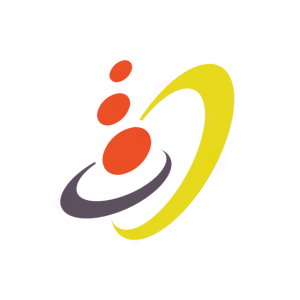Karyopharm Announces XPOVIO® (selinexor) Data to be Presented at the European Hematology Association 2021 Virtual Congress
Rhea-AI Summary
Karyopharm Therapeutics Inc. (Nasdaq: KPTI) announced the selection of nine abstracts for virtual presentation at the European Hematology Association (EHA) 2021 Virtual Congress from June 9-17, 2021. The abstracts showcase clinical data on XPOVIO® (selinexor), including subgroup analyses from the Phase 3 BOSTON study and updated data from the Phase 1b/2 STOMP study. Notably, an oral presentation will focus on the combination treatment achieving a 78% overall response rate among multiple myeloma patients. This highlights Karyopharm's ongoing commitment to advancing cancer therapies.
Positive
- Nine abstracts selected for presentation at EHA 2021, indicating strong research and development.
- Oral presentation to highlight XPOVIO results with a 78% overall response rate in multiple myeloma.
Negative
- None.
News Market Reaction 1 Alert
On the day this news was published, KPTI gained 6.26%, reflecting a notable positive market reaction.
Data tracked by StockTitan Argus on the day of publication.
NEWTON, Mass., June 9, 2021 /PRNewswire/ -- Karyopharm Therapeutics Inc. (Nasdaq: KPTI), a commercial-stage pharmaceutical company pioneering novel cancer therapies, today announced that nine abstracts have been selected for virtual presentation, including one oral presentation, at the upcoming European Hematology Association (EHA) 2021 Virtual Congress taking place June 9-17, 2021.
Key abstracts to be presented at the meeting will feature clinical data for XPOVIO® (selinexor), the Company's first in class, oral Selective Inhibitor of Nuclear Export (SINE) compound, including: (i) multiple new subgroup analyses from the pivotal Phase 3 BOSTON study, including data results evaluating XPOVIO treatment for patients over the age of 65 years old, patients with RAS-mutated multiple myeloma, patients previously treated with Revlimid® (lenalidomide), and genomic predictors of efficacy; (ii) updated data from the Kyprolis® (carfilzomib) and Pomalyst® (pomalidomide) arms of the Phase 1b/2 STOMP study evaluating XPOVIO in combination with standard of care agents in previously treated multiple myeloma; (iii) evaluation of XPOVIO combinations in patients with multiple myeloma following treatment with anti-CD38 monoclonal antibodies; (iv) the effect of lymphocyte count on safety and efficacy in the Phase 2b SADAL study evaluating XPOVIO in patients with diffuse large B-cell lymphoma; and (v) updated overall survival data from a Phase 1/2 study evaluating oral eltanexor, the Company's second generation SINE compound, in patients with hypomethylating-agent refractory myelodysplastic syndrome.
"We are pleased to see such a broad display of data from our clinical programs presented at EHA this year. In particular, we are encouraged that updated data from the Kyprolis® arm of the STOMP study was selected for an oral presentation," said Sharon Shacham, PhD, MBA, Chief Scientific Officer of Karyopharm. "More specifically, in the STOMP study, heavily pretreated multiple myeloma patients receiving once weekly XPOVIO in combination with once-weekly Kyprolis® and dexamethasone achieved an overall response rate of
Abstracts Featuring XPOVIO® (selinexor)
- Title: Once Weekly Selinexor, Carfilzomib, and Dexamethasone (XKd) in Carfilzomib Nonrefractory Multiple Myeloma (MM) Patients
Presenter: Cristina Gasparetto, Duke University Cancer Center
Abstract #: S188
Date and time: Friday, June 11, 2021; 3:00 a.m. ET
Session type: Oral Presentation
Session: New diagnostic and therapeutic approaches in multiple myeloma and AL amyloidosis - Title: Oral Selinexor, Pomalidomide, and Dexamethasone (XPd) at Recommended Phase 2 Dose in Relapsed Refractory Multiple Myeloma (MM)
Presenter: Darrell White, QEII Health Sciences Center, Dalhousie University
Abstract #: EP-1008
Date and time: Friday, June 11, 2021; 3:00 a.m. ET
Session type: E-Poster Presentation
Session: Myeloma and other monoclonal gammopathies – Clinical - Title: Selinexor Containing Regimens in Patients with Multiple Myeloma (MM) Previously Treated with anti-CD38 Monoclonal Antibodies
Presenter: Cristina Gasparetto, Duke University Cancer Center
Abstract #: EP1002
Date and time: Friday, June 11, 2021; 3:00 a.m. ET
Session type: E-Poster Presentation
Session: Myeloma and other monoclonal gammopathies – Clinical - Title: Survival Among Older Patients with Previously Treated Multiple Myeloma Treated with Selinexor, Bortezomib, and Dexamethasone (XVd) in the BOSTON study
Presenter: Thierry Facon, University Hospital
Abstract #: EP976
Date and time: Friday, June 11, 2021; 3:00 a.m. ET
Session type: E-Poster Presentation
Session: Myeloma and other monoclonal gammopathies – Clinical - Title: Effects of Selinexor on Previously Treated Multiple Myeloma (MM) with RAS-mutations
Presenter: Christopher J. Walker, Karyopharm Therapeutics Inc.
Abstract #: EP966
Date and time: Friday, June 11, 2021; 3:00 a.m. ET
Session type: E-Poster Presentation
Session: Myeloma and other monoclonal gammopathies – Clinical - Title: Efficacy and Safety of Selinexor, Bortezomib, and Dexamethasone Based on Refractory Status to Lenalidomide in Patients with Previously Treated Multiple Myeloma: A Post-hoc Analysis of the BOSTON Study
Presenter: Xavier Leleu, CHU de Poitiers, Hôpital La Mileterie
Abstract #: EP974
Date and time: Friday, June 11, 2021; 3:00 a.m. ET
Session type: E-Poster Presentation
Session: Myeloma and other monoclonal gammopathies – Clinical - Title: Genomic Correlates of Response to Selinexor in Multiple Myeloma from the BOSTON Study Reveal a Predictive Signature
Presenter: Paula Restrepo, Icahn School of Medicine at Mount Sinai
Abstract #: EP936
Date and time: Friday, June 11, 2021; 3:00 a.m. ET
Session type: E-Poster Presentation
Session: Myeloma and other monoclonal gammopathies - Biology & Translational Research - Title: Lymphocyte Count Effect on Efficacy and Safety of Single Agent Oral Selinexor in Patients with Relapsed/Refractory Diffuse Large B-Cell Lymphoma (DLBCL): A Post-hoc Analysis from Phase 2b SADAL Study
Presenter: Michael Schuster, Stony Brook University
Abstract #: EP530
Date and time: Friday, June 11, 2021; 3:00 a.m. ET
Session type: E-Poster Presentation
Session: Aggressive Non-Hodgkin lymphoma – Clinical
Abstracts Featuring Eltanexor - Title: Updated Overall Survival of Eltanexor for the Treatment of Patients with Hypomethylating Agent Refractory Myelodysplastic Syndrome
Presenter: Sangmin Lee, Weill Cornell Medical College
Abstract #: EP924
Date and time: Friday, June 11, 2021; 3:00 a.m. ET
Session type: E-Poster Presentation
Session: Myelodysplastic syndromes – Clinical
About XPOVIO® (selinexor)
XPOVIO is a first-in-class, oral Selective Inhibitor of Nuclear Export (SINE) compound. XPOVIO functions by selectively binding to and inhibiting the nuclear export protein exportin 1 (XPO1, also called CRM1). XPOVIO blocks the nuclear export of tumor suppressor, growth regulatory and anti-inflammatory proteins, leading to accumulation of these proteins in the nucleus and enhancing their anti-cancer activity in the cell. The forced nuclear retention of these proteins can counteract a multitude of the oncogenic pathways that, unchecked, allow cancer cells with severe DNA damage to continue to grow and divide in an unrestrained fashion. Karyopharm received accelerated U.S. Food and Drug Administration (FDA) approval of XPOVIO in July 2019 in combination with dexamethasone for the treatment of adult patients with relapsed refractory multiple myeloma (RRMM) who have received at least four prior therapies and whose disease is refractory to at least two proteasome inhibitors, at least two immunomodulatory agents, and an anti-CD38 monoclonal antibody. NEXPOVIO® (selinexor) has also been granted conditional marketing authorization for adult patients with heavily pretreated multiple myeloma by the European Commission. Karyopharm's supplemental New Drug Application (sNDA) requesting an expansion of its indication to include the treatment for patients with multiple myeloma after at least one prior therapy was approved by the FDA on December 18, 2020. In June 2020, Karyopharm received accelerated FDA approval of XPOVIO for its second indication in adult patients with relapsed or refractory diffuse large B-cell lymphoma (DLBCL), not otherwise specified, including DLBCL arising from follicular lymphoma, after at least 2 lines of systemic therapy. Selinexor is also being evaluated in several other mid-and later-phase clinical trials across multiple cancer indications, including as a potential backbone therapy in combination with approved myeloma therapies (STOMP) and in endometrial cancer (SIENDO), among others. Additional Phase 1, Phase 2 and Phase 3 studies are ongoing or currently planned, including multiple studies in combination with approved therapies in a variety of tumor types to further inform Karyopharm's clinical development priorities for selinexor. Additional clinical trial information for selinexor is available at www.clinicaltrials.gov.
For more information about Karyopharm's products or clinical trials, please contact the Medical Information department at:
Tel: +1 (888) 209-9326
Email: medicalinformation@karyopharm.com
XPOVIO® (selinexor) is a prescription medicine approved:
- In combination with bortezomib and dexamethasone for the treatment of adult patients with multiple myeloma who have received at least one prior therapy (XVd).
- In combination with dexamethasone for the treatment of adult patients with relapsed or refractory multiple myeloma who have received at least four prior therapies and whose disease is refractory to at least two proteasome inhibitors, at least two immunomodulatory agents, and an anti–CD38 monoclonal antibody (Xd).
- For the treatment of adult patients with relapsed or refractory diffuse large B–cell lymphoma (DLBCL), not otherwise specified, including DLBCL arising from follicular lymphoma, after at least 2 lines of systemic therapy. This indication is approved under accelerated approval based on response rate. Continued approval for this indication may be contingent upon verification and description of clinical benefit in confirmatory trial(s).
SELECT IMPORTANT SAFETY INFORMATION
Warnings and Precautions
- Thrombocytopenia: Monitor platelet counts throughout treatment. Manage with dose interruption and/or reduction and supportive care.
- Neutropenia: Monitor neutrophil counts throughout treatment. Manage with dose interruption and/or reduction and granulocyte colony–stimulating factors.
- Gastrointestinal Toxicity: Nausea, vomiting, diarrhea, anorexia, and weight loss may occur. Provide antiemetic prophylaxis. Manage with dose interruption and/or reduction, antiemetics, and supportive care.
- Hyponatremia: Monitor serum sodium levels throughout treatment. Correct for concurrent hyperglycemia and high serum paraprotein levels. Manage with dose interruption, reduction, or discontinuation, and supportive care.
- Serious Infection: Monitor for infection and treat promptly.
- Neurological Toxicity: Advise patients to refrain from driving and engaging in hazardous occupations or activities until neurological toxicity resolves. Optimize hydration status and concomitant medications to avoid dizziness or mental status changes.
- Embryo–Fetal Toxicity: Can cause fetal harm. Advise females of reproductive potential and males with a female partner of reproductive potential, of the potential risk to a fetus and use of effective contraception.
- Cataract: Cataracts may develop or progress. Treatment of cataracts usually requires surgical removal of the cataract.
Adverse Reactions
- The most common adverse reactions (≥
20% ) in patients with multiple myeloma who receive XVd are fatigue, nausea, decreased appetite, diarrhea, peripheral neuropathy, upper respiratory tract infection, decreased weight, cataract and vomiting. Grade 3–4 laboratory abnormalities (≥10% ) are thrombocytopenia, lymphopenia, hypophosphatemia, anemia, hyponatremia and neutropenia. In the BOSTON trial, fatal adverse reactions occurred in6% of patients within 30 days of last treatment. Serious adverse reactions occurred in52% of patients. Treatment discontinuation rate due to adverse reactions was19% .
- The most common adverse reactions (≥
20% ) in patients with multiple myeloma who receive Xd are thrombocytopenia, fatigue, nausea, anemia, decreased appetite, decreased weight, diarrhea, vomiting, hyponatremia, neutropenia, leukopenia, constipation, dyspnea and upper respiratory tract infection. In the STORM trial, fatal adverse reactions occurred in9% of patients. Serious adverse reactions occurred in58% of patients. Treatment discontinuation rate due to adverse reactions was27% .
- The most common adverse reactions (incidence ≥
20% ) in patients with DLBCL, excluding laboratory abnormalities, are fatigue, nausea, diarrhea, appetite decrease, weight decrease, constipation, vomiting, and pyrexia. Grade 3–4 laboratory abnormalities (≥15% ) are thrombocytopenia, lymphopenia, neutropenia, anemia, and hyponatremia. In the SADAL trial, fatal adverse reactions occurred in3.7% of patients within 30 days, and5% of patients within 60 days of last treatment; the most frequent fatal adverse reactions was infection (4.5% of patients). Serious adverse reactions occurred in46% of patients; the most frequent serious adverse reaction was infection(21% of patients). Discontinuation due to adverse reactions occurred in17% of patients.
Use In Specific Populations
Lactation: Advise not to breastfeed.
For additional product information, including full prescribing information, please visit www.XPOVIO.com.
To report SUSPECTED ADVERSE REACTIONS, contact Karyopharm Therapeutics Inc. at 1–888–209–9326 or FDA at 1–800–FDA–1088 or www.fda.gov/medwatch.
About Eltanexor (KPT-8602)
Eltanexor (KPT-8602) is a second generation oral SINE compound, which is currently being investigated in clinical trials. Eltanexor functions by binding to and inhibiting the nuclear export protein XPO1 (also called CRM1), leading to the accumulation of tumor suppressor proteins in the cell nucleus. Eltanexor has demonstrated minimal brain penetration in animals, which has been associated with reduced toxicities in preclinical studies while maintaining potent anti-tumor effects.
About Karyopharm Therapeutics
Karyopharm Therapeutics Inc. (NASDAQ: KPTI) is a commercial-stage pharmaceutical company pioneering novel cancer therapies and dedicated to the discovery, development, and commercialization of first-in-class drugs directed against nuclear export for the treatment of cancer and other diseases. Karyopharm's Selective Inhibitor of Nuclear Export (SINE) compounds function by binding with and inhibiting the nuclear export protein XPO1 (or CRM1). Karyopharm's lead compound, XPOVIO® (selinexor), is approved in the U.S. in multiple hematologic malignancy indications, including in combination with Velcade® (bortezomib) and dexamethasone for the treatment of adult patients with multiple myeloma after at least one prior therapy, in combination with dexamethasone for the treatment of adult patients with heavily pretreated multiple myeloma and as a monotherapy for the treatment of adult patients with relapsed or refractory diffuse large B-cell lymphoma. NEXPOVIO® (selinexor) has also been granted conditional marketing authorization in combination with dexamethasone for adult patients with heavily pretreated multiple myeloma by the European Commission. In addition to single-agent and combination activity against a variety of human cancers, SINE compounds have also shown biological activity in models of neurodegeneration, inflammation, autoimmune disease, certain viruses and wound-healing. Karyopharm has several investigational programs in clinical or preclinical development. For more information, please visit www.karyopharm.com.
Forward-Looking Statements
This press release contains forward-looking statements within the meaning of The Private Securities Litigation Reform Act of 1995. Such forward-looking statements include those regarding Karyopharm's expectations and plans relating to XPOVIO for the treatment of patients with relapsed or refractory multiple myeloma or certain other tumors; the expected design of the Company's clinical trials; and the therapeutic potential of and potential clinical development plans for Karyopharm's drug candidates, especially selinexor. Such statements are subject to numerous important factors, risks and uncertainties, many of which are beyond Karyopharm's control, that may cause actual events or results to differ materially from Karyopharm's current expectations. For example, there can be no guarantee that any of Karyopharm's drug candidates, including selinexor, will successfully complete necessary clinical development phases or that development of any of Karyopharm's drug candidates will continue. Further, there can be no guarantee that any positive developments in the development or commercialization of Karyopharm's drug candidate portfolio will result in stock price appreciation. Management's expectations and, therefore, any forward-looking statements in this press release could also be affected by risks and uncertainties relating to a number of other factors, including the following: the risk that the COVID-19 pandemic could disrupt Karyopharm's business more severely than it currently anticipates, including by negatively impacting sales of XPOVIO, interrupting or delaying research and development efforts, impacting the ability to procure sufficient supply for the development and commercialization of selinexor or other product candidates, delaying ongoing or planned clinical trials, impeding the execution of business plans, planned regulatory milestones and timelines, or inconveniencing patients; the adoption of XPOVIO in the commercial marketplace, the timing and costs involved in commercializing XPOVIO or any of Karyopharm's drug candidates that receive regulatory approval; the ability to retain regulatory approval of XPOVIO or any of Karyopharm's drug candidates that receive regulatory approval; Karyopharm's results of clinical trials and preclinical studies, including subsequent analysis of existing data and new data received from ongoing and future studies; the content and timing of decisions made by the U.S. Food and Drug Administration and other regulatory authorities, investigational review boards at clinical trial sites and publication review bodies, including with respect to the need for additional clinical studies; the ability of Karyopharm or its third party collaborators or successors in interest to fully perform their respective obligations under the applicable agreement and the potential future financial implications of such agreement; Karyopharm's ability to obtain and maintain requisite regulatory approvals and to enroll patients in its clinical trials; unplanned cash requirements and expenditures; development or regulatory approval of drug candidates by Karyopharm's competitors for products or product candidates in which Karyopharm is currently commercializing or developing; and Karyopharm's ability to obtain, maintain and enforce patent and other intellectual property protection for any of its products or product candidates. These and other risks are described under the caption "Risk Factors" in Karyopharm's Quarterly Report on Form 10-Q for the quarter ended March 31, 2021, which was filed with the Securities and Exchange Commission (SEC) on May 4, 2021, and in other filings that Karyopharm may make with the SEC in the future. Any forward-looking statements contained in this press release speak only as of the date hereof, and, except as required by law, Karyopharm expressly disclaims any obligation to update any forward-looking statements, whether as a result of new information, future events or otherwise.
XPOVIO®(selinexor) is a registered trademark of Karyopharm Therapeutics Inc. Any other trademarks referred to in this release are the property of their respective owners.
![]() View original content:http://www.prnewswire.com/news-releases/karyopharm-announces-xpovio-selinexor-data-to-be-presented-at-the-european-hematology-association-2021-virtual-congress-301308491.html
View original content:http://www.prnewswire.com/news-releases/karyopharm-announces-xpovio-selinexor-data-to-be-presented-at-the-european-hematology-association-2021-virtual-congress-301308491.html
SOURCE Karyopharm Therapeutics Inc.








